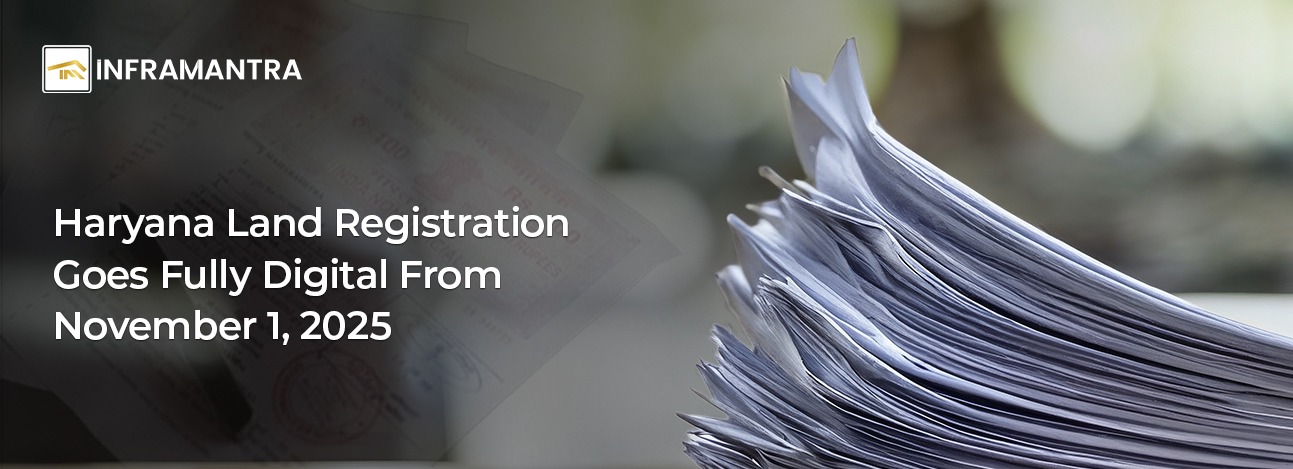Haryana is set to transition to a completely paperless land registration system beginning November 1, 2025, with physical documents and manual verifications being phased out across all tehsils. Under the new system, property deeds will only require digital signatures, a move aimed at eliminating issues like tampering, forgery, and the loss of files.
The announcement was made by Sumita Misra, Haryana’s Financial Commissioner (Revenue), during a meeting with deputy commissioners to assess the progress of the state’s digital reforms in land and revenue administration. Misra described the shift as a “new chapter” in transparent and citizen-friendly governance, marking Haryana’s complete digital transformation in land records management.
To ease the transition for the public, the government has allowed stamps purchased before November 3 to remain valid until November 15, 2025, under the new system. In addition, witnesses can now be digitally modified if necessary, Misra explained.
Tehsildars, naib tehsildars, and registration staff have been directed to complete the registration of user accounts on the revenue department’s online portal without delay. Misra also revealed that the government has set a deadline to resolve all pending property mutation cases by the end of this week. The state is reviewing the current 10-day mutation verification rule and will soon introduce an auto-mutation system starting November 25, aimed at automatically recording ownership transfers to prevent delays and disputes.
A key component of this reform is the complete ban on manual collection of registration fees. All payments will now be processed exclusively through the official e-governance payment gateway, ensuring greater transparency and accountability. Deed writers have been instructed to stop manually drafting documents, as only digitally generated deeds from the official portal will hold legal validity. These digital deeds will be automatically verified against land records and signed by the relevant authorities, ensuring accuracy and security.
Misra further directed officials to update and verify all 7A land record numbers and court stay orders in the central system by the upcoming Friday to maintain data integrity. Furthermore, the government will only accept land demarcation requests via the online portal, effectively ending offline submissions. The demarcation process will utilize GPS-enabled rover technology for accurate measurements, with approvals granted by circle revenue officers and kanungos.
The fee structure for land demarcation has been designed to remain affordable, with charges set at ₹1,000 plus ₹500 per additional acre in rural areas and a flat fee of ₹2,000 in urban areas.
✍️ Written By: INFRAMANTRA
.webp)

